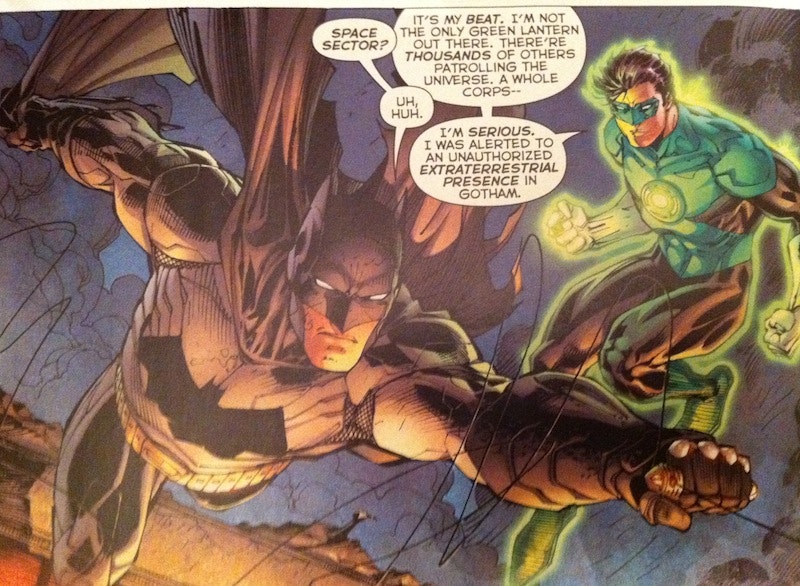D.C. Comics is just realizing something that mylar-bag hoarding fanboys
have known for time immemorial: continuity is a bitch, a crutch in
telling stories about superheroes who can't profitably age along with
anyone reading along at home. Bruce Wayne can't really ascend to his
fifties; Peter Parker doesn't make sense beyond maybe the age of 35.
Traditionally, the crutch of continuity has meant that every couple of
years the D.C. powers-that-be cook up some sort of crossover event that
allows for the jury-rigging of continuity: your Zero Hours, your Crises
On Infinite Earths. All of this tinkering and nipping and tucking was
obvious, disheartening, and lame; I haven't collected DC comics in
years, but when I recall how the gritty, universe-in-disarray Legion of
Super Heroes was skunked in the late 1990s, I still get irate.
So let's all take a moment to give D.C. their props. You see, after
years of machinations and bet hedging, D.C. has finally stopped
fronting; all of the publishers' titles have been reset. It's a fresh
start for everyone. Teen Titans? Outsiders? Never happened. Joke League
America? No idea. Amanda Waller corralling super villians to go on
espionage missions as the Suicide Squad? Never heard of it. Lobo?
Aren't they a band from Texas?
Last week, my mother bought Justice League #1 for my son; I perused it
idly, largely unimpressed by the story, art, and general drift, bit
somewhat intrigued on a few other levels. Penciller Jim Lee and inker
Scott Williams—I'm flashing back to old Uncanny Xmen and WildC.A.T.S.
adventures now—team up to kickstart a vision of a League in the modern
age, a kind of august-heroes-as-muties persecution scenarios in a
skittish world where costumed freaks double as terrorists or at the very
least security risks. At one point, beastie detonates a device,
suicide-bomber style, yelling "FOR DARKSEID!" Immediately after
containing the blast, Green Lantern Hal Jordan—who has just met Batman—wonders whether "Dark Side" is a band. There's a friskiness to this
sort of knowing gesture that sits uneasily alongside the Alphas-esque
narrative and the idea that, well, putting suicide bomber creatures in
mainstream comics probably isn't considered a controversial move. Then
again, this is a modern take on iconography that's decades old; some
awkwardness was inevitable.
Better late than never, as the slogan goes. Your move, Marvel Comics; come on in, the 21st century's fraught.
Starting From Scratch
D.C. Comics returns to the starting line.

